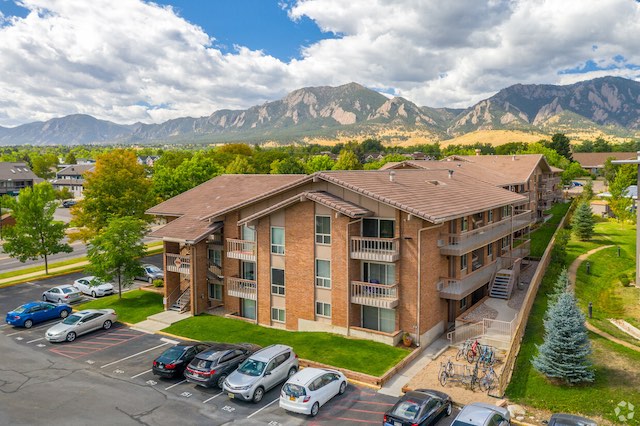“Housing needs planning” is the opening line of Colorado Senate Bill 23-213, which was introduced into the legislature last week. By “planning” the bill means government planning, and the proposed law would require the state to determine housing needs and set housing targets and to interfere with local zoning to require more accessory dwelling units, multifamily housing, and transit-oriented developments.
Apartments in Boulder, Colorado, the most heavily planned and most expensive housing market in the state.
The basic premise of this law is wrong: housing and government planning go together like oil and water. A look at housing markets in Colorado and nationwide show that states and regions with more planning end up having less affordable housing. A secondary premise, that multifamily housing is more affordable than single-family homes, is also wrong.
The real purpose of Senate Bill 23-213 is to allow planners to impose their housing preferences on other people. Most Americans, and certainly most Coloradans, want to live in low-density areas, but planners want them to live in compact cities, meaning more multifamily housing. By forcing neighborhoods of single-family homes to accept accessory units and multifamily housing, planners are imposing their preferences on others.
Boulder has a greenbelt that is off limits to development and the price of a median home was 7.5 times the median family income in 2020. The Denver urban area has an urban-growth boundary restricting the construction of large tracts of single-family homes at the urban fringe and a median home there cost 4.6 times median family income. Pueblo has some of the least-intrusive planning and a median home there was only 3.3 times median family income.
If the Colorado legislature wants to solve the state’s housing problem, the best thing it can do is to force cities and counties to get out of the way of new housing. That means eliminating growth boundaries and other restrictions on new housing developments in rural areas. It could also mean forcing Boulder and other cities to sell off some of the “open space” they have purchased to push up housing prices. Colorado is 98.5 percent rural open space and doesn’t need government planners to protect those spaces. What it does need is less government planning.









We should force the state government to stop forcing local governments to stop forcing neighborhoods of single-family homes to accept accessory units and multifamily housing!
I haven’t read the article yet, but I’ve been meaning to ask why haven’t you focused on master planned communities when critiquing city central planning? They are highly market driven and you could easily use them as examples to drive in your points.
WordPress_anonymous,
I have written a lot about master planned communities, which are a major driver of housing affordability in Texas and other states. I haven’t mentioned them in recent blog posts but they play a big role of chapter 6 of my book, American Nightmare. I did discuss them on this blog two years ago when I pointed out that the only master planned community to be approved in California in recent years took 34 years from its initial application to start of construction. But you are right: I probably should mention them more frequently.
Another example of tyrannical Big Government overreach: a proposal to force NY State government to stop forcing the cities to stop forcing drivers to drive at a safer speed:
https://www.silive.com/news/2023/02/state-proposal-would-allow-nyc-to-lower-its-speed-limits.html